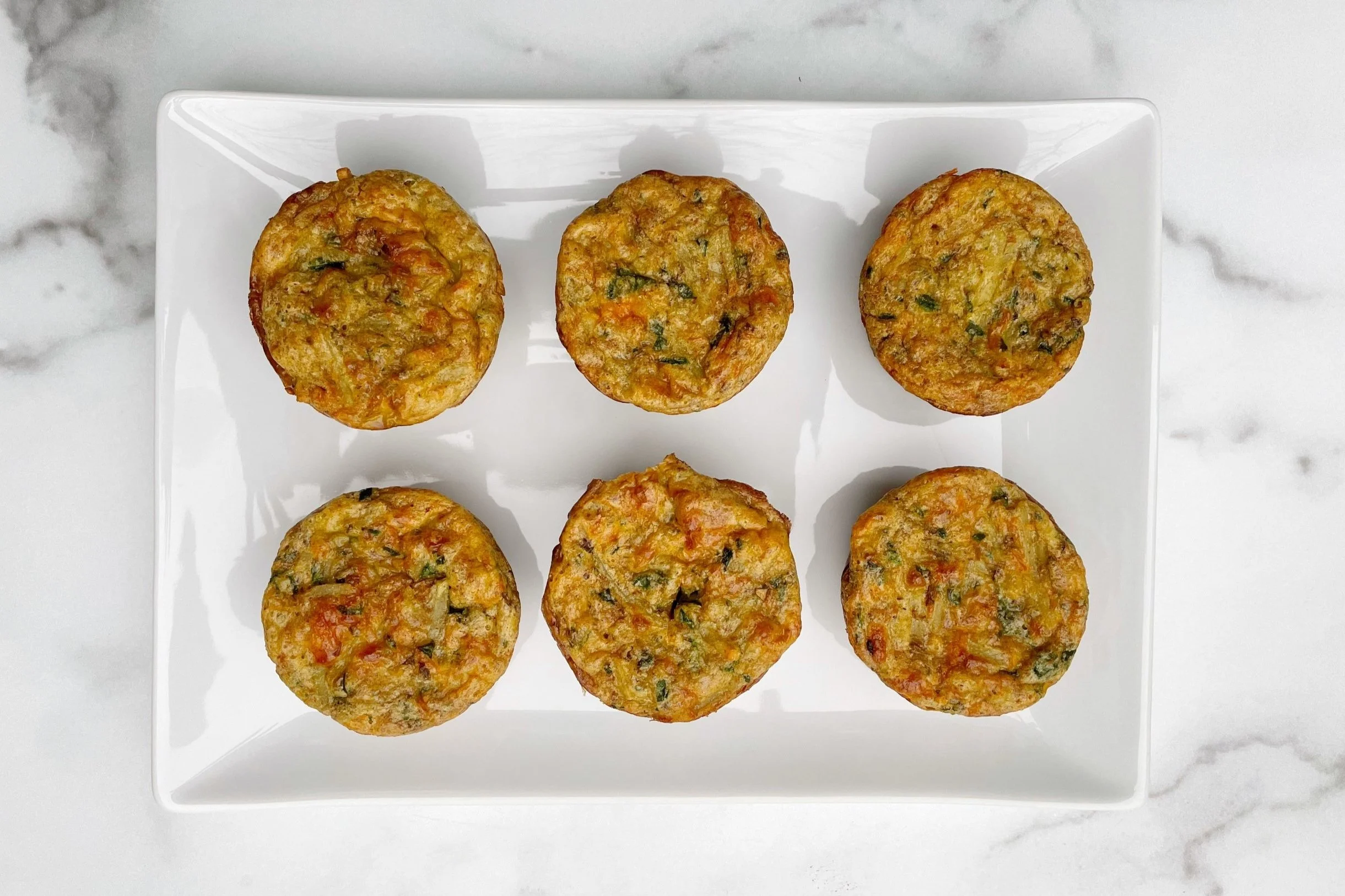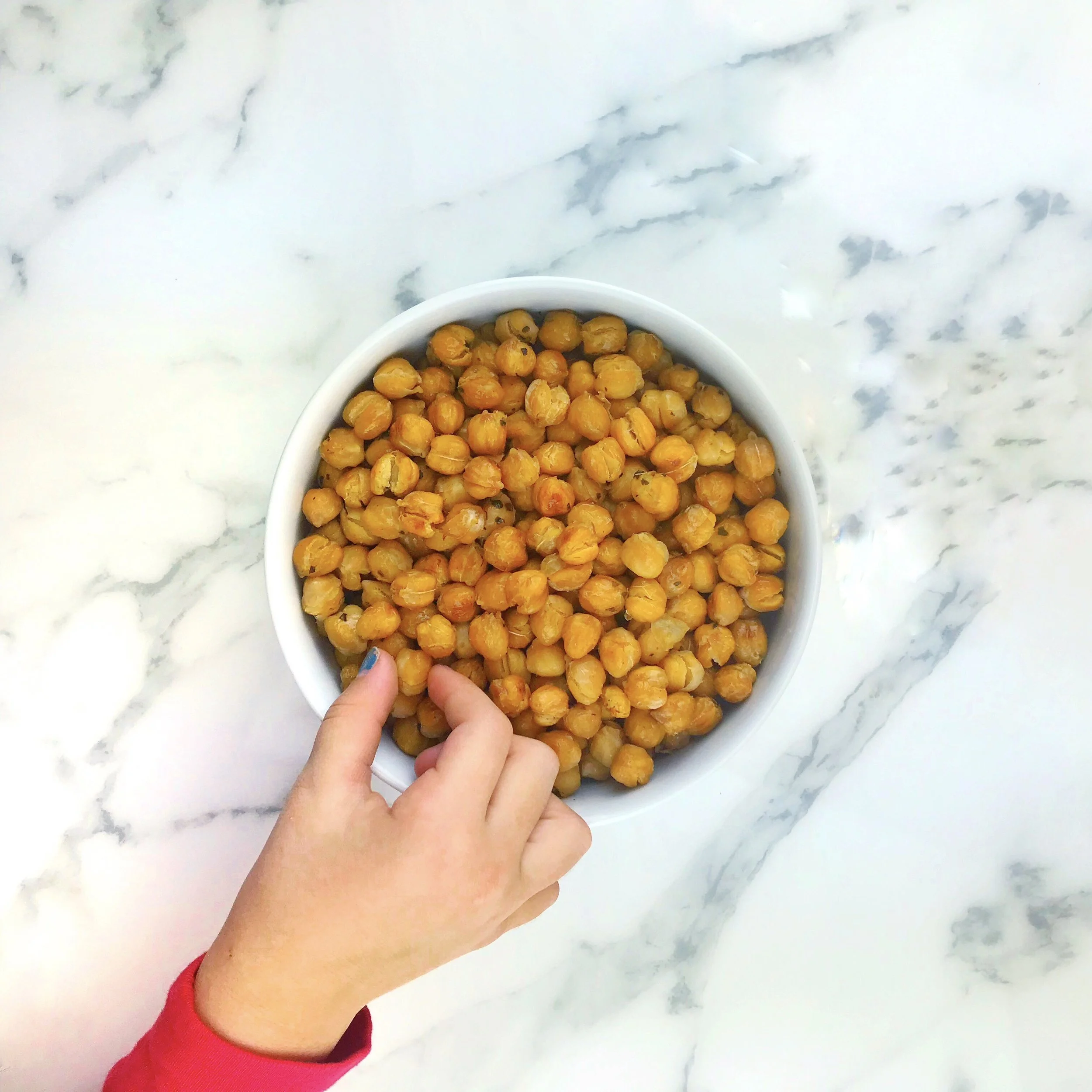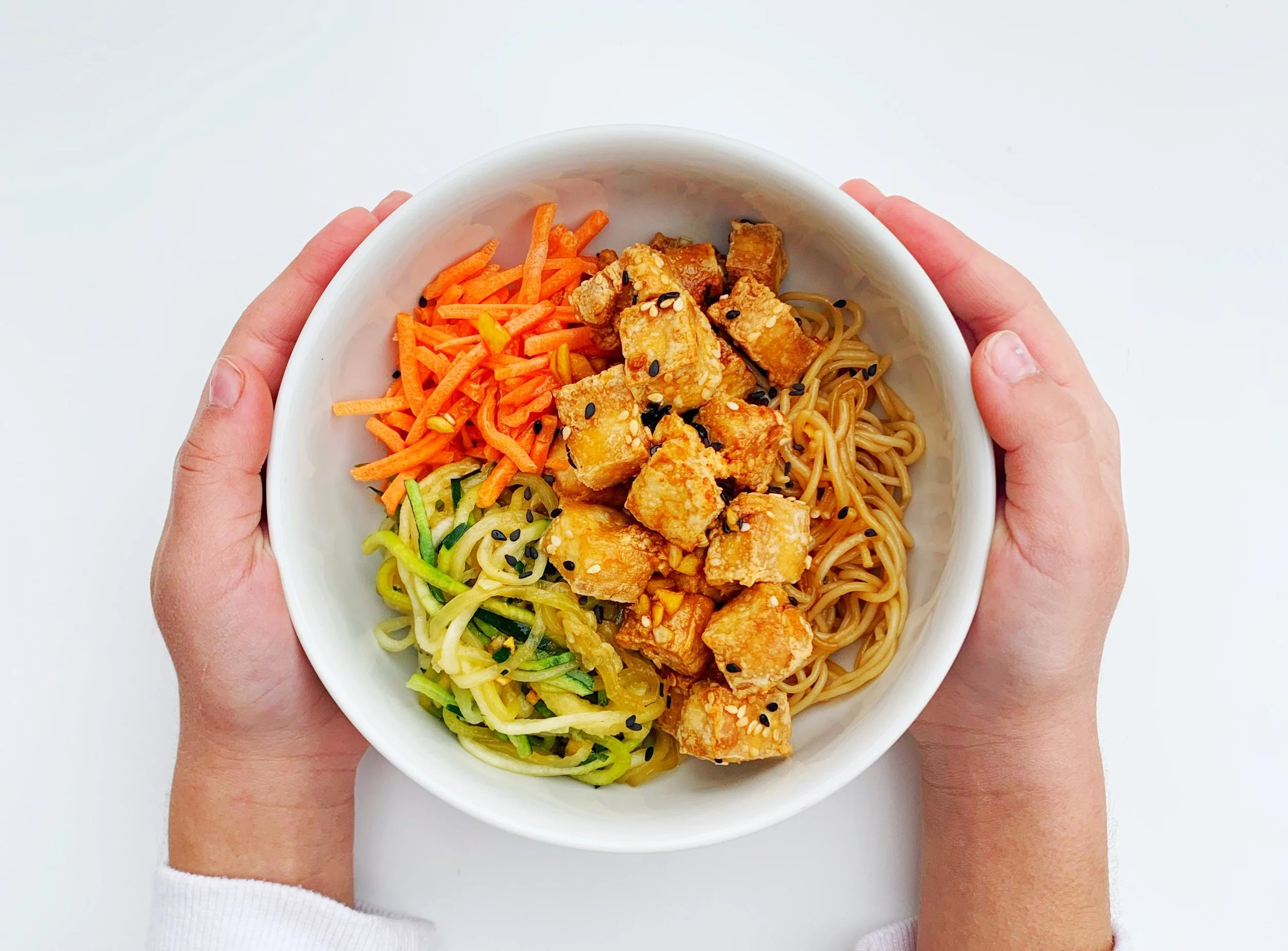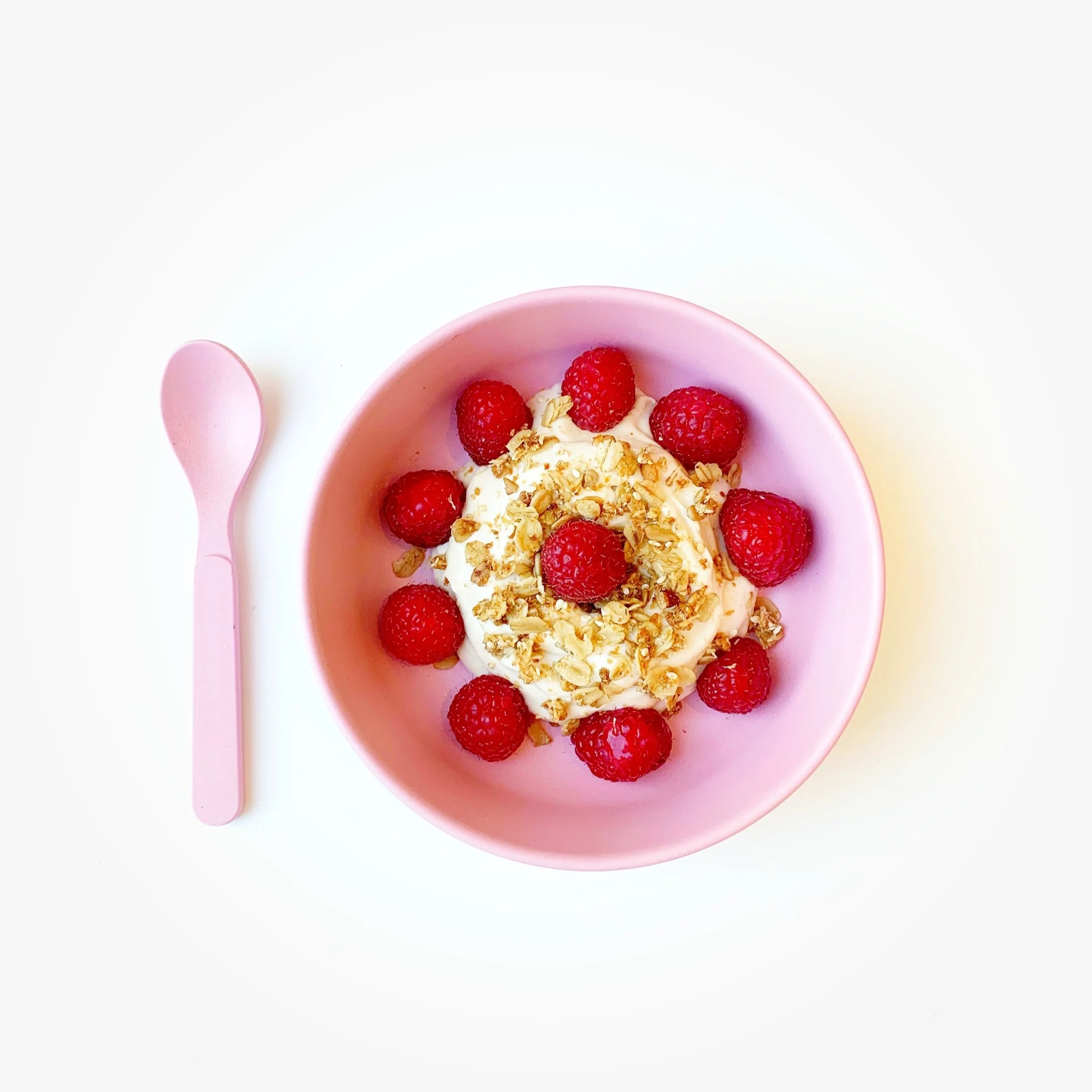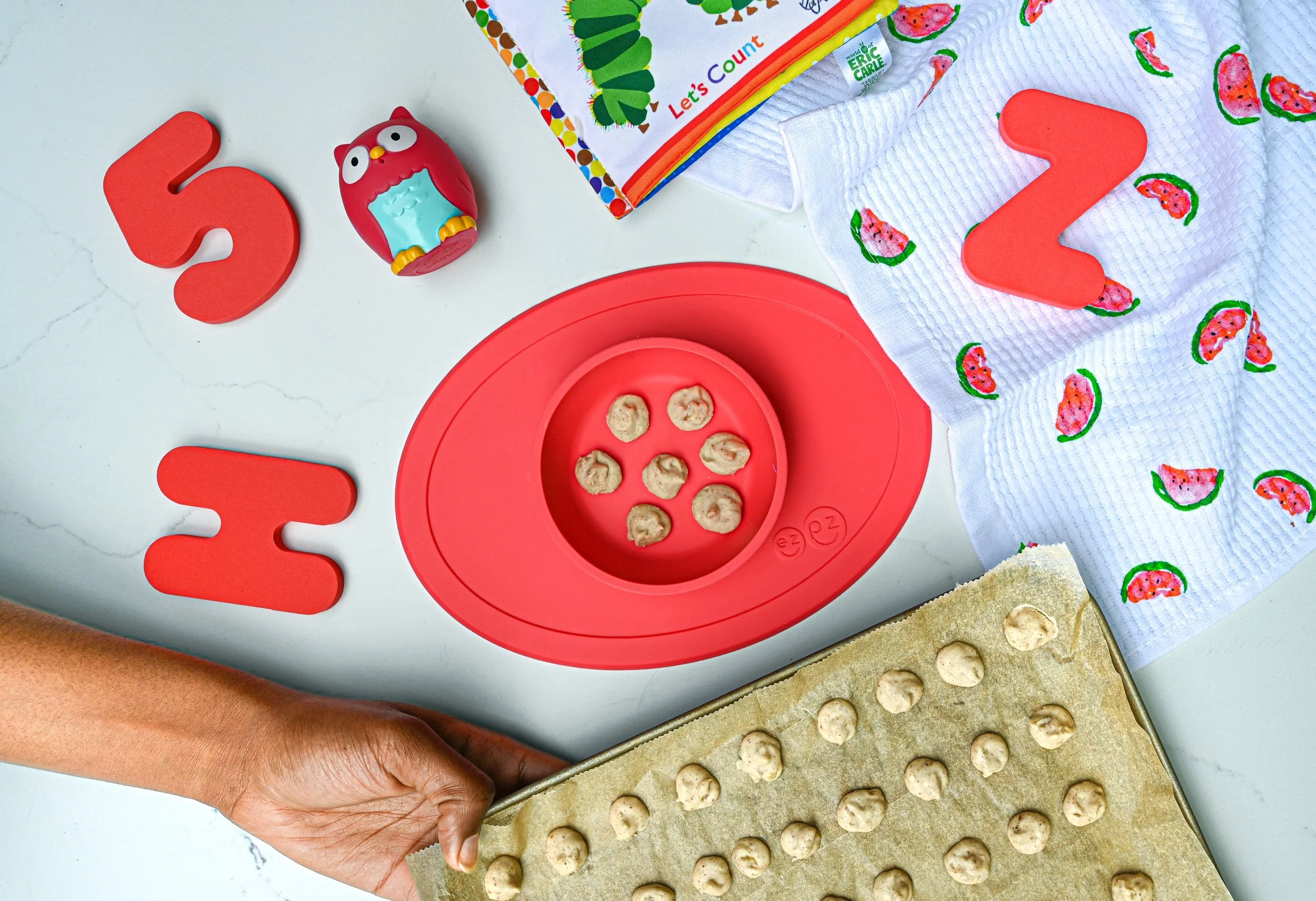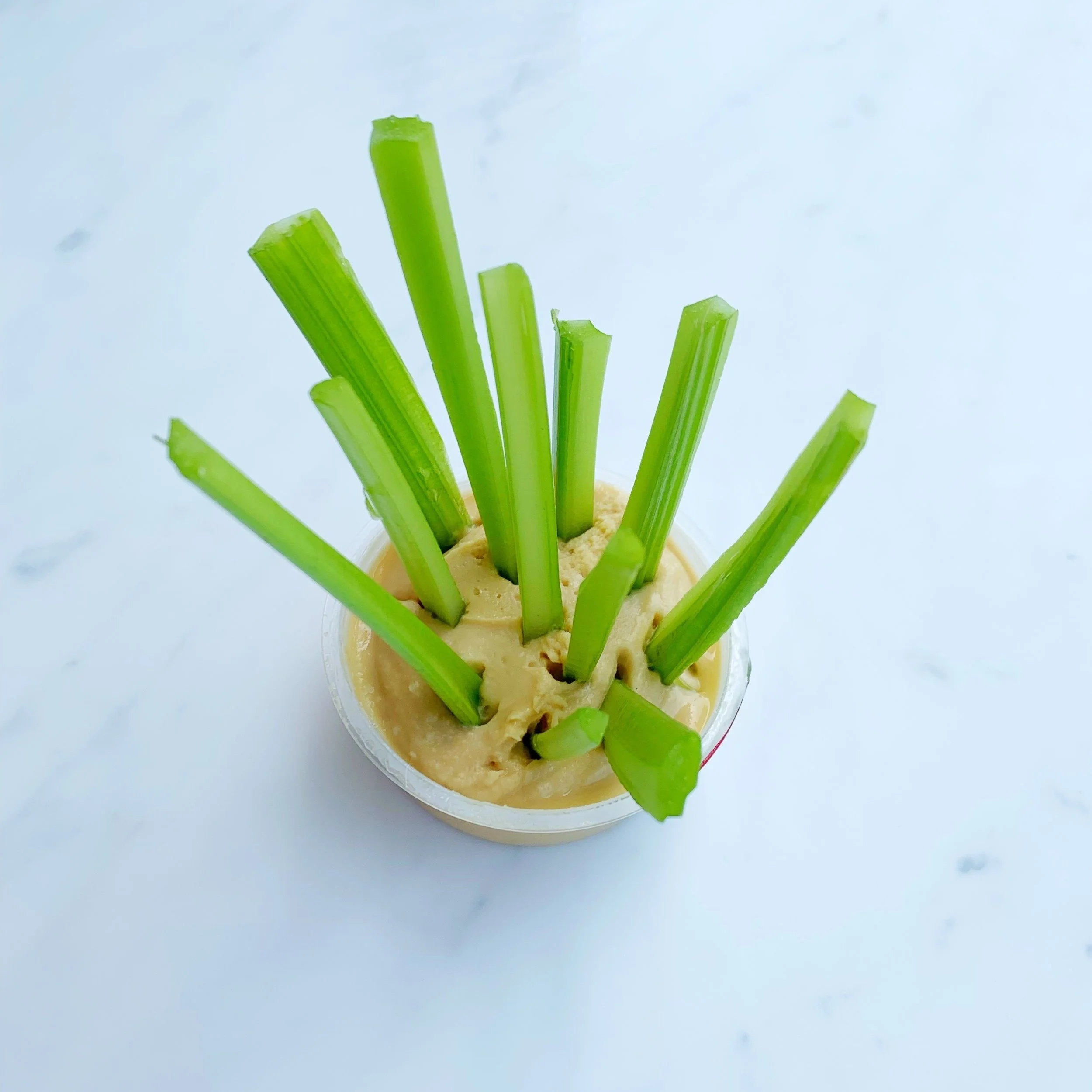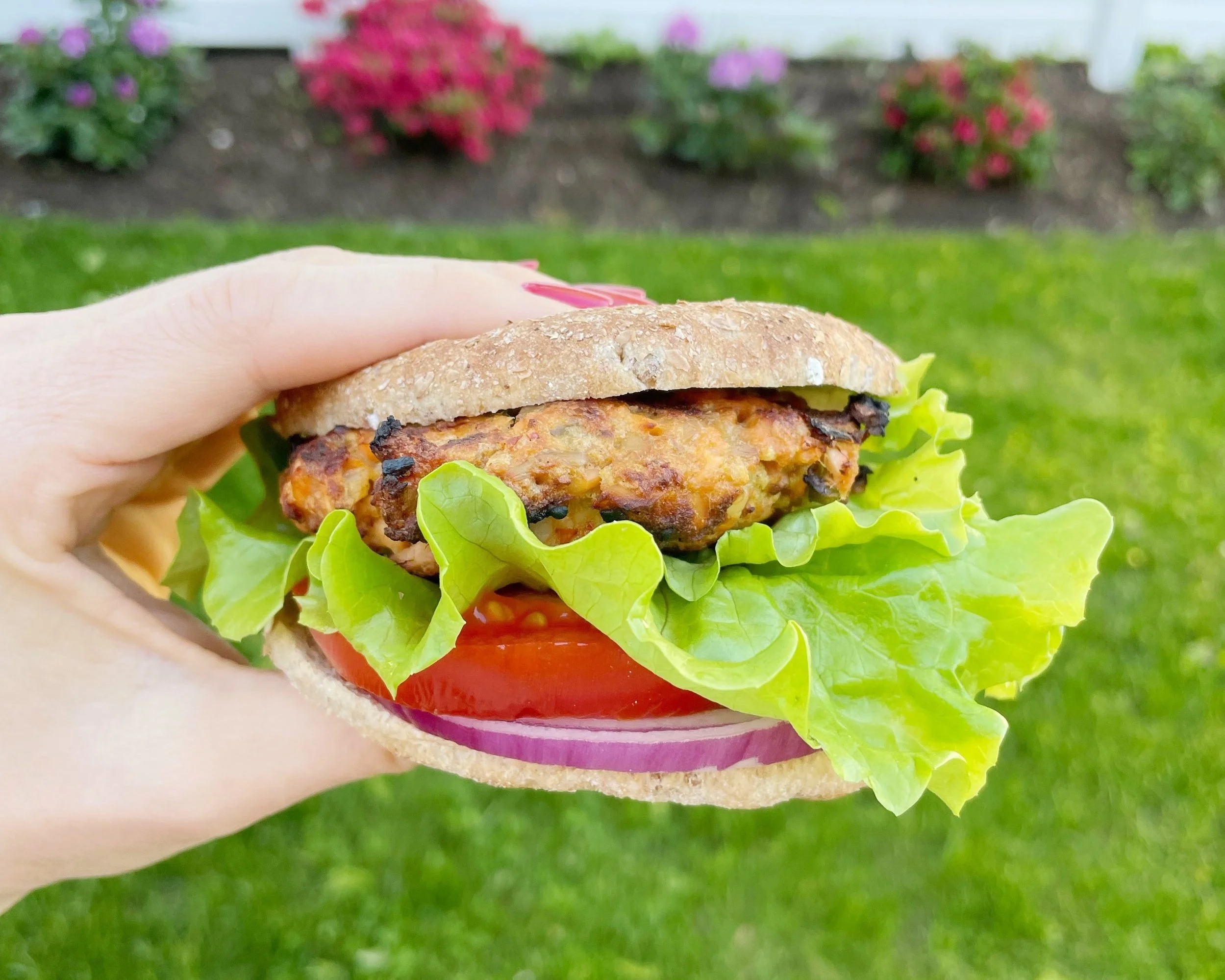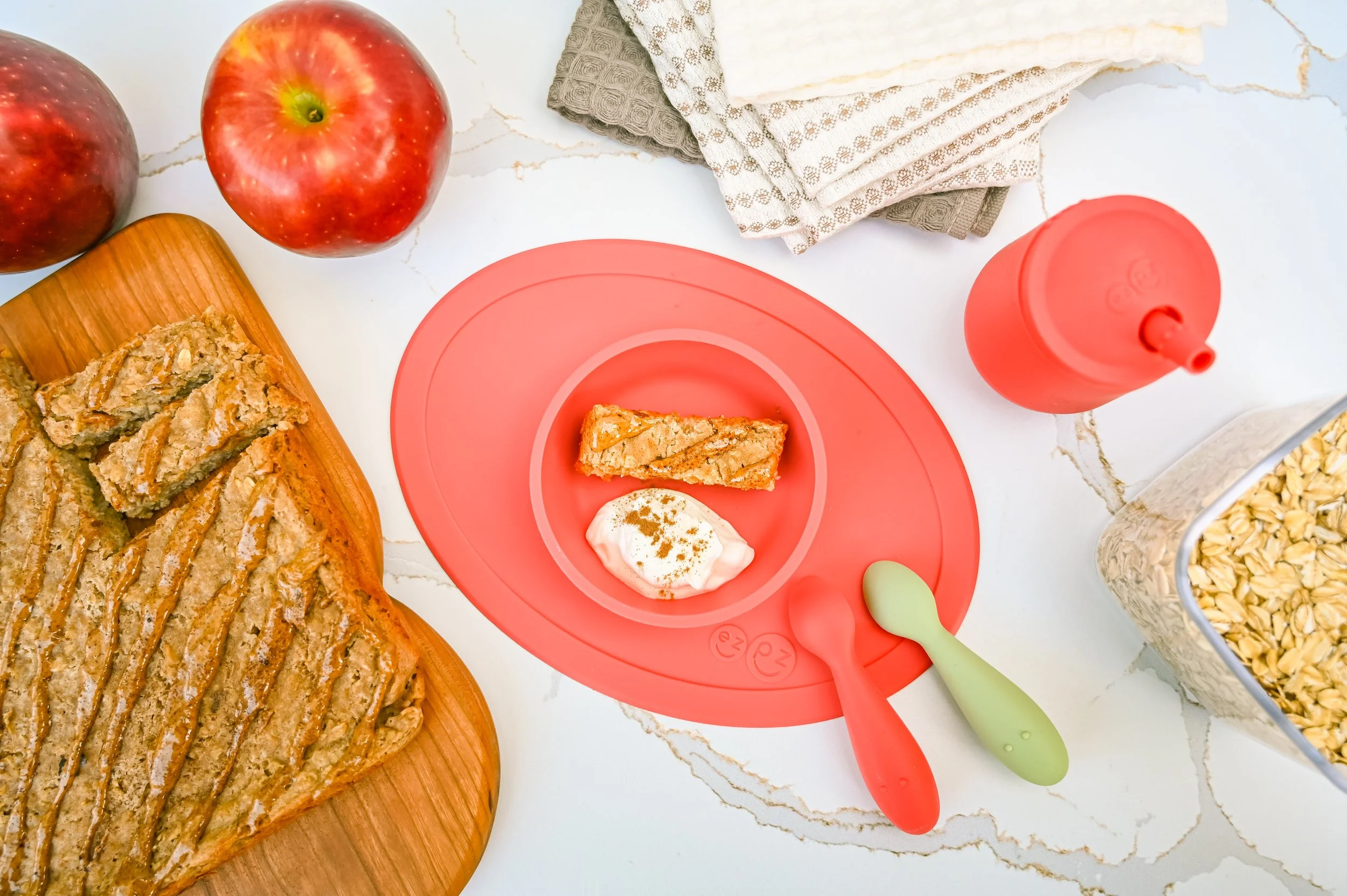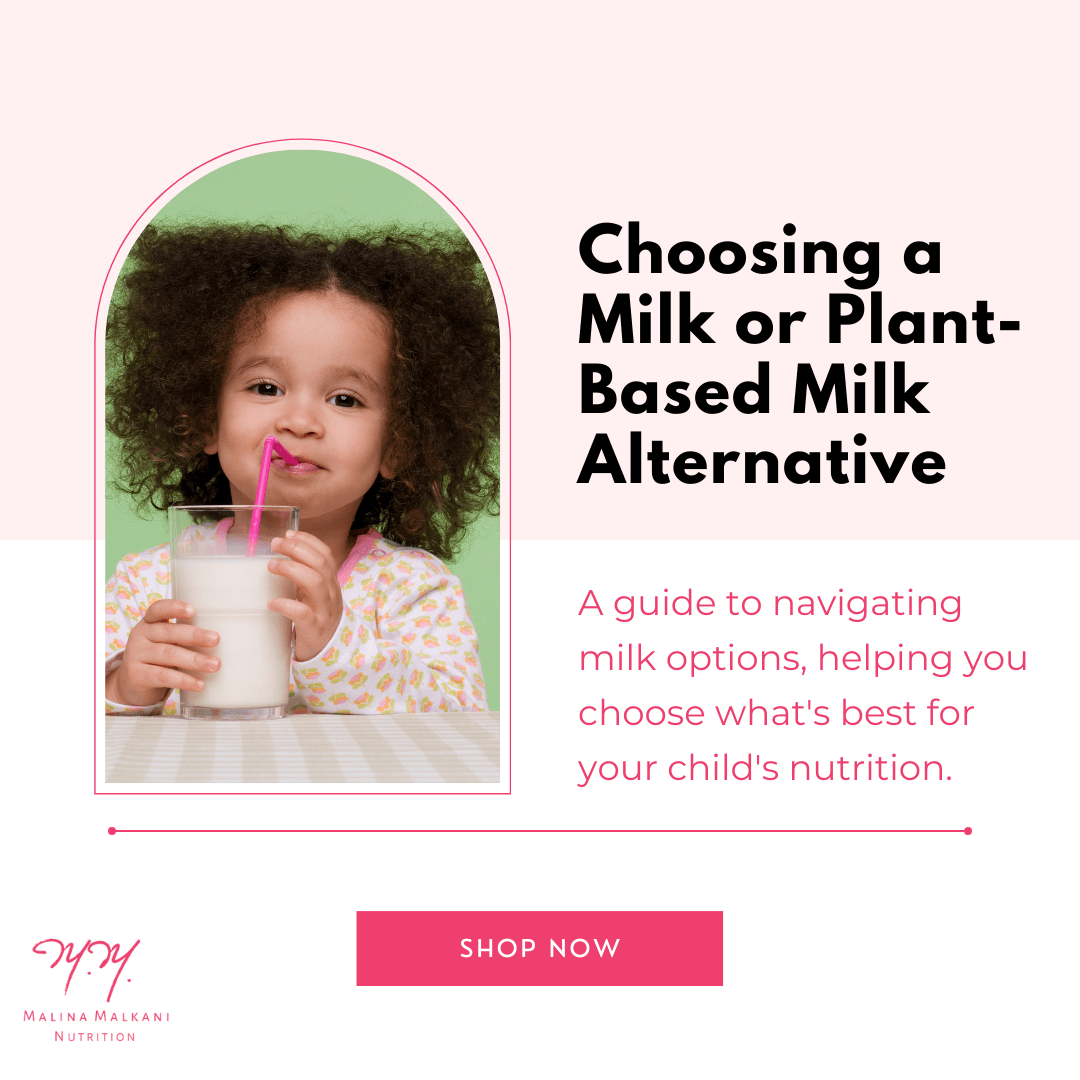How Much Protein Does a Toddler Need?
Protein is a crucial nutrient for all children. It supports their growth and development by serving as the building blocks for tissues, muscles, enzymes, and hormones. Ensuring adequate protein intake for your little one is essential during this rapid growth stage.
Most kids eating a well-balanced diet will get enough protein throughout the day. However, when you have a child who is a picky eater, it can be tough to know if your child is getting enough protein or if a supplement is needed.
As a pediatric registered dietitian and infant/toddler feeding expert, my goal in this post is to help parents and caregivers understand the importance of protein for toddlers as we explore their specific nutritional needs and discuss practical strategies to ensure adequate protein intake.
Protein Recommendations for Toddlers
Protein plays a vital role in a toddler's diet as it aids in muscle development, supports the immune system, and contributes to the production of enzymes and hormones.
Children aged 1-3 need an average of about 13 grams of protein per day or about 5-20% of their daily calories. If your child drinks the recommended two 8-ounce cups of milk per day (with ~7.5 grams of protein per cup), they will meet their protein needs with milk alone.
Another back-of-the-envelope, quick way to estimate a child’s protein needs is the following:
Daily protein needs = ½ gram protein per pound body weight
As an example, if a toddler weighs 22 pounds, estimated daily protein needs would hover around 11 grams per day (22 divided by 2).
It is sometimes easier to think about protein for toddlers in 1-ounce equivalents; for example, one slice of deli meat, one egg, 12 almonds, one tablespoon of nut butter, or ¼ cup of beans are all one-ounce equivalent servings of protein. Toddlers ages 12-23 months only need about 2-ounce equivalents of protein per day.
Protein deficiency is rare in Western countries but still possible. If your child eats a plant-based diet and is a picky eater, and/or avoids dairy, soy, and legumes, it may be challenging to get the appropriate daily protein recommendations. If you are worried your child is not getting enough protein, talk to your pediatrician or dietitian, who can help assess the need for additional protein and figure out ways to build good sources of protein that your child enjoys into their diet.
Best High-Protein Foods for Toddlers
When it comes to incorporating protein into your toddler's diet, it's important to choose a variety of sources to help balance nutrients. Here is a list of high-protein solid foods to include in your child’s meals and snacks:
Lean Meats, such as chicken and turkey, are excellent sources of protein; choose skinless and boneless options and prepare them in a toddler-friendly manner, such as mincing or shredding, to ensure easy chewing and digestion
Fish and seafood, such as salmon and shrimp, are rich in protein and also provide essential omega-3 fatty acids for brain development (make sure fish is thoroughly cooked and deboned before serving to your toddler)
Eggs are a versatile and nutrient-dense protein source; they can be scrambled, boiled, or incorporated into various dishes like omelets or egg muffins
Dairy Products like milk, cheese, and yogurt are excellent sources of protein for toddlers; choose yogurts without added sugars; offer cheese in small, age-appropriate portions
Peanuts and legumes, including peanut butter, lentils, chickpeas, cannellini beans, and black beans, are plant-based protein sources that also offer fiber and other essential nutrients
Tofu and tempeh are soy-based products that are nutritious and provide a good amount of protein; tofu can be mashed or diced and added to stir-fries or vegetable dishes; tempeh can be crumbled and mixed into sauces or used as a protein-rich topping
Tips for Incorporating Protein into Toddler Meals and Snacks
Offer plain Greek yogurt topped with fruits, granola, or a drizzle of honey (if over 12 months old)
Spread a thin layer of peanut or almond butter on whole-grain crackers or apple slices, or make these yummy Mascarpone Peanut Butter Melts
Slice a hard-boiled egg into bite-sized pieces, or try making these delicious Dijon Deviled Eggs
Provide cheese cubes, string cheese, or slices of cheese for a snack
Serve hummus with vegetable sticks or whole-grain pita bread, or try this recipe for easy, Toasty Chickpeas
Prepare small, soft turkey meatballs and serve them with this delicious Mediterranean Summer Pasta made with chickpea pasta which has three times as much protein as regular pasta
Make a quinoa salad by combining cooked quinoa with chopped vegetables, beans, and diced chicken or baked Sesame Tofu
Make Salmon and Shrimp Sliders; eat them on a whole-grain bun or slice it into bite-sized pieces
Make these easy Veggie Egg Bites using beaten eggs and finely chopped vegetables like bell peppers, spinach, and tomatoes
Can I give my child a protein powder or bar?
Protein bars and powders are generally not recommended for toddlers, as most kids can easily meet their protein needs with a well-balanced diet - even our picky eaters! If your child likes to eat a bar for a snack, look for one with limited added sugar (ideally less than 5 grams per bar).
Another option is to make your own bars at home so you can limit the amount of sugar that is added. Try these nutrient-dense Apple Oat Bars or high-protein Pumpkin Chocolate Chip Bars.
In some cases, a pediatrician or dietitian may recommend a protein powder, but only if the child has a medical need requiring higher protein intake or is not receiving enough protein through their diet.
If you are looking for more personalized guidance regarding your toddler's specific protein requirements and dietary preferences, I am accepting new patients in my virtual practice and would love to meet with you.
Can a plant-based diet support the protein needs of toddlers?
According to the Academy of Nutrition and Dietetics, a well-planned vegan or vegetarian diet can provide all the nutrients needed at any stage of the lifecycle.
In order to get adequate protein while eating a plant-based diet, build meals around plant-based foods that contain protein and are rich in nutrients. The best plant-based protein sources are tofu/tempeh, beans and lentils, and nuts/nut butter.
Proteins from animal sources are considered “complete” because they contain all nine of the essential amino acids that our bodies need. Most plant proteins (except for soy and quinoa), are considered “incomplete” and need to be paired with other foods to help balance their protein needs; for example, eating peanut butter with whole-grain toast.
When choosing a milk alternative for your child, it is best to offer plain, unsweetened fortified soy milk as it is minimally processed and has a high quality, digestible complete protein, unlike most other plant-based milks.
Check out my e-guide on choosing milk products if you would like to read more.
Can toddlers get too much protein?
While not very common, it is possible for toddlers to get too much protein. Studies show that the upper limit of protein tolerance for toddlers ages 1-3 is about 5 grams of protein per kilogram of body weight per day. So if you have a 22-pound toddler, they can tolerate up to a maximum of 50 grams of protein per day, but it doesn’t mean they should.
Signs of excess protein intake in children may include stomach aches, dehydration, nausea, diarrhea, fatigue, headaches, and possible seizures. Excessive protein consumption can also cause serious liver and kidney injuries.
Young kids most commonly consume excess protein if they are given smoothies or breakfast cereals with added protein powders. Another frequent culprit is protein bars. Try to avoid giving young children any foods with added protein unless advised by a dietitian or pediatrician, as it may put them above their safe upper limits of protein consumption.
If you have a child struggling with picky eating, grab my FREE guide to reducing picky eating. If you want more guidance navigating picky eating behaviors in your toddler, preschooler, and school-age kids, check out my online course, Solve Picky Eating, a self-paced set of 12 modules delivered in 5-15 minute videos.
Thanks for reading!



